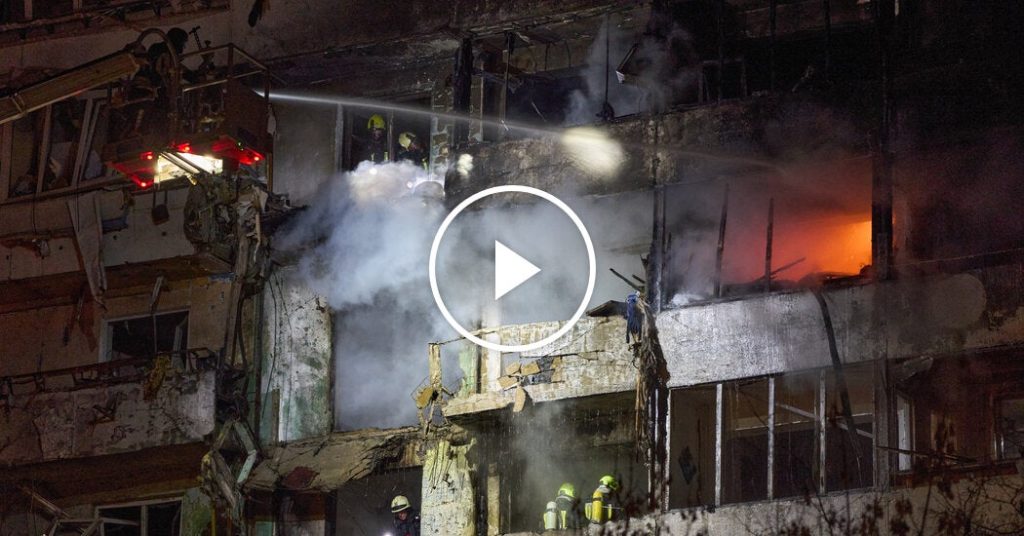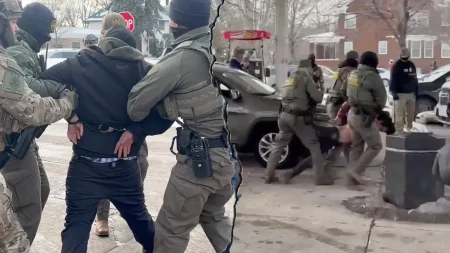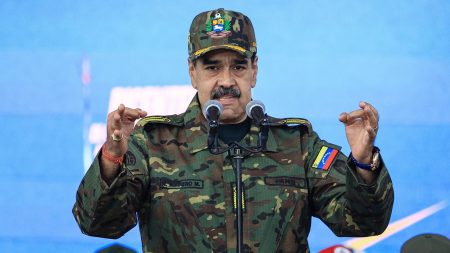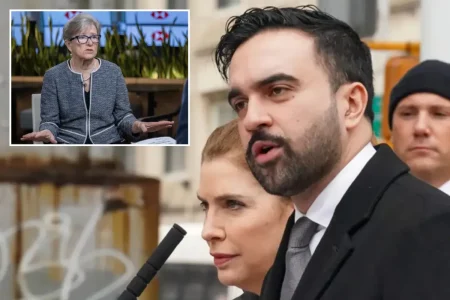Kyiv Residents Doubt Peace Talks After Deadly Russian Barrage
Ukraine’s Hope for Diplomacy Shaken by Devastating Attack
In the shadowy aftermath of what Ukrainian officials described as one of the most devastating aerial assaults on Kyiv in recent months, residents of the capital city expressed profound skepticism about ongoing peace negotiations. The Russian barrage, which claimed at least six lives on Tuesday, struck mere hours after U.S. and Ukrainian mediators concluded a round of high-profile peace talks in Geneva. As emergency crews worked through the night to extinguish flames engulfing residential buildings, the stark juxtaposition of diplomatic dialogue and deadly violence raised serious questions about Russia’s commitment to any negotiated settlement.
“They speak of peace in Switzerland while they rain fire on our homes,” said Olena Kovalenko, a 42-year-old teacher who lives just three blocks from one of the impact sites. “How can we believe in these talks when the bombing never stops?” Her sentiment echoed throughout the shell-shocked neighborhoods of Ukraine’s capital, where the psychological toll of nearly three years of conflict has hardened many citizens against diplomatic optimism. The timing of Tuesday’s attack—following so closely on the heels of international peace efforts—struck many Kyiv residents as a deliberately cynical message from Moscow, undercutting any progress that might have been made at the negotiating table.
The Human Cost of Continued Conflict
The immediate aftermath of the barrage revealed scenes of chaos and heroism that have become grimly familiar in Ukraine’s urban centers. First responders battled intense flames that illuminated the night sky with an ominous orange glow, while medical teams worked frantically to treat the wounded. Among the casualties were an elderly couple who had survived the Nazi occupation of Kyiv during World War II, only to perish in this modern conflict. Their grandson, Andriy Petrenko, spoke with journalists as he clutched his grandparents’ wedding photograph salvaged from the rubble. “They lived through the worst of the 20th century only to die in what was supposed to be their golden years,” he said, his voice breaking. “And for what? For some geopolitical game?”
Beyond the immediate casualties, the attack compounded the infrastructure damage that has plagued Ukraine throughout the conflict. The barrage targeted several critical utility stations, leaving approximately 30,000 residents without heat or electricity as temperatures dropped below freezing. The Ukrainian energy minister confirmed that emergency repair teams were working around the clock to restore services, but warned that complete repairs could take weeks. Meanwhile, hospitals operated on backup generators as they treated the influx of wounded civilians. Dr. Maryna Shevchenko, who heads Kyiv’s central emergency hospital, reported treating dozens of patients with blast injuries and burns. “The pattern of injuries suggests the missiles were designed to maximize civilian casualties,” she noted, citing the high proportion of wounds caused by secondary fragmentation.
Diplomatic Efforts Under Scrutiny
The Geneva talks, which concluded just before the attack, had been billed as a potential breakthrough after months of diplomatic stagnation. U.S. Special Envoy to Ukraine Victoria Harrington had expressed cautious optimism following twelve hours of intensive discussions. “We’ve established some preliminary frameworks for humanitarian corridors and prisoner exchanges,” Harrington told reporters before news of the attack reached Switzerland. When informed of the Kyiv barrage during her press conference, Harrington’s expression visibly darkened. “This unconscionable attack underscores why these negotiations are so critical, but also why they’re so difficult,” she stated. “We cannot allow violence to derail diplomatic progress, even as we condemn it in the strongest possible terms.”
The Russian delegation, which had participated in parallel discussions with U.S. intermediaries but not direct talks with Ukrainian representatives, issued a statement claiming the attack targeted “legitimate military objectives” and denied deliberately striking civilian infrastructure. This assertion was swiftly contradicted by United Nations observers on the ground, who documented multiple impacts in purely residential areas with no military presence. The contradiction highlighted the fundamental challenge facing peace negotiators: bridging an increasingly unbridgeable reality gap between Russian claims and documented facts. Ukrainian President Volodymyr Zelensky, addressing his nation in a late-night video, questioned Russia’s sincerity: “How can we negotiate with those who speak of peace while their missiles are already in the air? The world must understand that Russia uses talks as cover for aggression, not as a path to resolution.”
International Response and Military Dynamics
The international community’s reaction followed predictable fault lines, with NATO allies condemning the attack while countries maintaining closer ties with Russia either remained silent or issued calls for “restraint from all parties.” European Commission President Helena Bergström announced an additional €500 million in emergency humanitarian assistance for Ukraine and called for expedited delivery of air defense systems previously promised by Western partners. “This attack reminds us that Ukraine’s civilian population remains extraordinarily vulnerable,” Bergström stated. “Our support cannot waver in the face of such brutality.”
Military analysts noted that the barrage represented a significant escalation in both scale and sophistication. “We observed at least three distinct weapons systems deployed simultaneously,” explained Colonel Jakub Nowak, a NATO liaison officer speaking on background. “This suggests Russia was testing Ukraine’s improved air defenses by overwhelming them with multiple concurrent threats.” Ukrainian air defense forces reported intercepting approximately 60% of incoming projectiles—a significant improvement over earlier in the conflict, but still insufficient to prevent substantial damage. The attack utilized a combination of ballistic missiles, cruise missiles, and Iranian-designed Shahed drones, according to preliminary assessments from Ukraine’s air force. This multi-layered approach has become increasingly common as Russia adapts to Ukraine’s enhanced defensive capabilities, creating new challenges for the defenders and their Western backers.
The Road Ahead: Between Hope and Resignation
As dawn broke over Kyiv on Wednesday, residents emerged from shelter to assess the damage and begin the now-familiar process of recovery. Street cleaners swept away broken glass while utility workers strung temporary power lines through damaged neighborhoods. The resilience that has characterized Ukraine throughout this conflict was on full display, even as doubt about diplomatic solutions deepened. “We will rebuild again, as we always do,” said Dmytro Kravchuk, a municipal worker clearing debris from a children’s playground struck by missile fragments. “But I no longer believe peace will come from talking. They only understand strength.”
The Geneva negotiations are scheduled to resume next week, though several diplomatic sources speaking on condition of anonymity expressed concern that Tuesday’s attack might prompt Ukraine to reconsider its participation. U.S. Secretary of State Amanda Harding emphasized that abandoning talks would serve Russian interests: “Diplomacy remains essential even—perhaps especially—in moments of heightened violence.” Yet for Kyiv’s exhausted residents, such diplomatic abstractions offer little comfort. As firefighters finally extinguished the last smoldering building near midnight, 78-year-old Valentyna Melnyk summarized the sentiment of many: “They talk in Switzerland while we burn in Ukraine. Tell me, who is listening to our voices?” Her question hung in the air, unanswered, as emergency vehicles continued to wail through the darkened streets of a capital city caught between fragile hope and hardening resignation—a microcosm of a nation wondering if peace remains possible, or merely a diplomatic illusion shattered with each new barrage.












